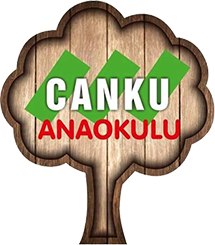Branch Courses
Physical Training
Preschool period is a period that has to be given importance to support all development fields and children to be healthier individuals. Especially for the children who live in the cities, children, the ability of movement is limited.
Whether in school or not we aim to improve children’s movement abilities and teach them how to use their bodies correctly, with the plans we made according to movement development stages.
The playgroups in our school are designed to support the muscular development of our children.
Our activities
* Group games
* Gymnastics
* Garden games
* Drama
* Folk dances
GYMNASTICS
Gymnastics is a sport that forms the basis of all sports branches. Provides body flexibility and balance, muscles development. On the one hand, the child meets the needs of the game, while on the other hand, children become disciplined, harmonious, social, self-confident and believe that they will succeed. The age of starting gymnastics is 4 to 6 years.
DRAMA
Learning is the most important concept among education activities. There is an undisputable consensus among all educators that most effective and permanent learning process is ‘learning by making-experiencing’. Drama is one of the most effective ways of ‘learning by making-experiencing’. With its simplest definition, which is also agreed upon by educators/artists/executers who are in relation with the subject, drama is explaining a subject via body language, by making moves, with movement. It is the transformation of an internal state, a design, a thought into action. With drama, an individual thinks, makes plans, organizes and executes thoughts by transforming them into actions. Throughout this process, learns new behaviors and emotions through new lives, and experiences. Therefore, individuals develop their ability to control emotions, change them, express thoughts, verbal communication.
FOLKLORE
“LEARNING OUR NATIONAL GAMES IS AN HONOR, TEACHING IS SACRED” K. ATATURK
It enables child’s physical and mental functions to work simultaneously. It gives a social and active personality. Makes the grasping of the sense of music and rhythm quicker. It carries our culture that comes from our ancestors to the future.
Music
Every child is interested in music from the first months. This interest begins with the mother's lullabies. He/she hears about the environment and feeds on the music he learns. Music has an impact on the child's language development, emotional-social development, physical and psychomotor development.
The importance of music in the child's life;
Teaching songs: Teaching children a song with words, lyrics, melody and weighing. The aim is to help the child to love the music, to be happy and to help develop a positive personality.
Rhythm studies: Teaching rhythm patterns to children in a way that can be repeated with their hands, feet, body, musical instruments or words is called rhythm training.
Ear training: It is the education made to give the child the ability to grasp the sounds, subtleties, thicknesses, and repeating.
Voice training: The training of the human voice with the aim of giving beautiful singing skills is called voice training.
Gameplay with music: Children participate with their entire bodies to the games that is accompanied with music. They have the opportunity to explain their various feelings and thoughts with their bodily movements. It enhances its personality by adding imagination and creativity.
 TR
TR EN
EN
 WhatsApp İletişim Hattı
WhatsApp İletişim Hattı